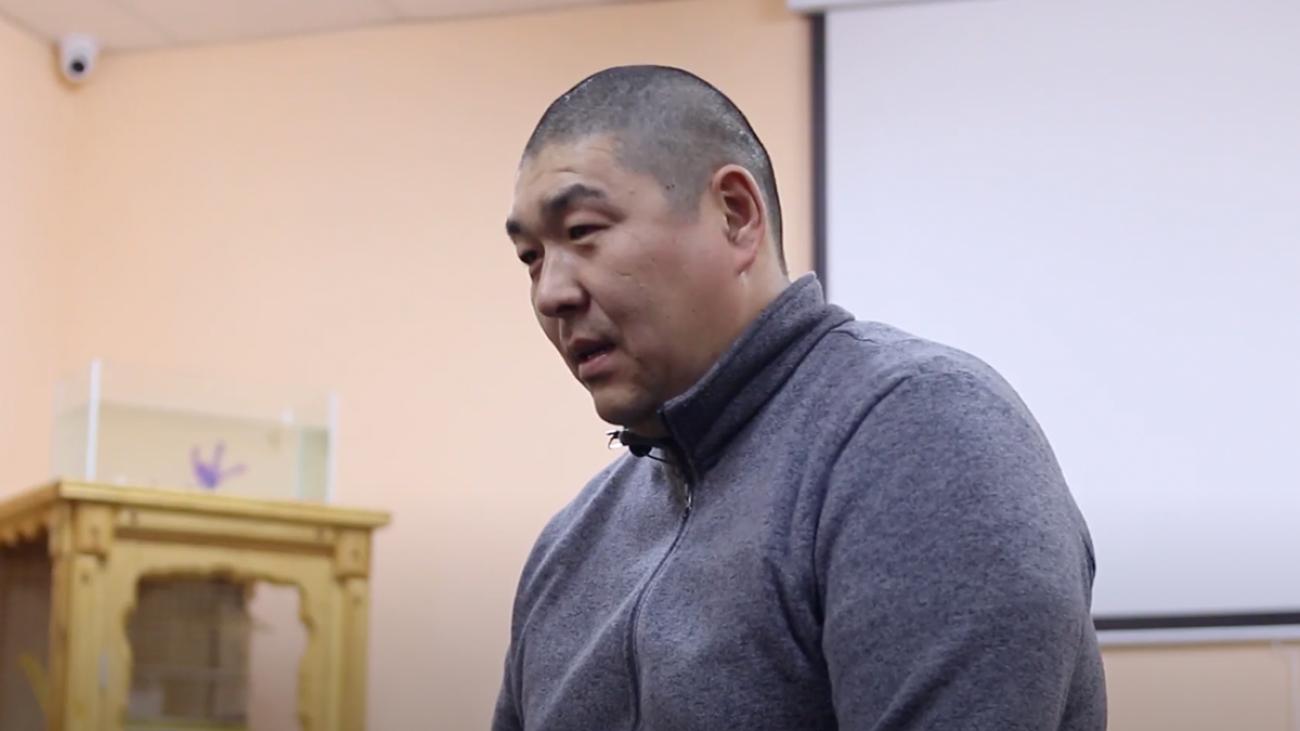The impact of a global EU/UN initiative working with violent extremist prisoners: Nurlan’s story

“My name is Nurlan. I would like to tell you my story”
Five years ago, Nurlan was sent to a prison in northern Kazakhstan. “I asked myself, how am I going to get through my sentence? What am I going to do?”
Rehabilitation is a key function of prisons. It is vital that time spent in prison is used productively so that on release, ex-prisoners can re-join their communities and safely participate in society. Yet many factors weaken the ability of prisons to effectively provide rehabilitation. These include overcrowding, poor prison conditions, understaffing, lack of financial resources, and little support for prisoners to maintain social ties outside.
Kuanysh Koichubaev is a governor in the prison where Nurlan served his sentence. “We work extensively with prisoners to support their successful re-socialization,” he says, describing three key strands of support: disengagement from violence; educational and vocational programmes; and active support for maintaining social connections outside the walls. “Evidence shows that those who have someone waiting for them outside are less likely to violate prison rules and will try hard to return home as soon as possible,” Koichubaev adds.
“UN representatives understood our needs.”
Nurlan decided to make use of the prison’s vocational programme, setting up a furniture manufacturing workshop with three other inmates.
“At first, we took small orders. We made furniture as best we could without any modern equipment. But in 2019, United Nations (UN) representatives visited the workshop. I showed them my orders, my products, my problems, and what we lacked for large-scale work. They understood our needs and helped us procure the necessary equipment.”
Since 2018, Kazakhstan has been one of three beneficiary countries of a global European Union and UN joint initiative to support member states to manage violent extremist prisoners and prevent radicalization to violence in prisons.
The implementing partners have been the UN Office on Drugs and Crime, the UN Counter-Terrorism Centre and the UN Security Council Counter-Terrorism Committee Executive Directorate.
All have worked closely with the national authorities of Kazakhstan, Tunisia and Uganda in four key impact areas: safety and security; risk and needs assessment; disengagement interventions; and social reintegration.
While the initiative has targeted the issue of violent extremism, interventions have also aimed at broader prison reform in order to promote good prison management. This is the foundation for all other targeted interventions, including those for violent extremist prisoners.
The initiative’s impact can be seen across pilot prisons in all three countries – and was felt deeply by Nurlan, who “started taking more prisoners to work.” His number of employees increased from three to 35, including 17 violent extremist prisoners. They were offered meaningful work and income, as well as training that gave them ways to become productive members of society when they leave prison.
Koichubaev states the importance of the prison’s vocational programme: “It's difficult for prisoners to integrate into society after years of isolation. That's why family support, professional skills and work opportunities can give prisoners a powerful platform to not only become full members of society, but also prevent repeat offending and make communities safer. We are positively influencing a prisoner’s fate and showing them we care about their life.”
“I’ve got big plans ahead of me.”
The joint initiative is coming to an end, but great attention is being paid to ensuring its significant achievements are sustained and replicated.
This includes facilitating local ownership of, and continued political commitment to, achieved results; investing in capacity building; developing strategic partnerships with civil society organizations; and shifting policy perspectives towards preventing violent extremism, rather than simply punishing it.
The knowledge gained from the initiative in Kazakhstan, Tunisia and Uganda has enhanced the international evidence base on the management of violent extremist prisoners and the prevention of radicalization to violence in prisons.
Yet there is more to do. In all three countries, continued political commitment will help to embed and extend the changes seen over the course of the programme, leading to well-managed prisons and safer communities.
As for Nurlan, he is hopeful for the future. “I've got big plans ahead of me. I've got a family and a son waiting for me at home, and I think it's only a matter of time before I get home and meet them.”
Further information
The initiative to manage violent extremist prisoners and prevent radicalization to violence in prisons was made possible thanks to the generous support of donors the European Union, the Netherlands and the UN Office of Counter-Terrorism.
You can read the impact report here in English. Versions in French and Russian are also available via this page.
Find out more here about UNODC’s wider work on prison and penal reform.


